BuiltWorlds has named its list of 25 AI contech tools transforming the built environment
The selection includes AI contech tools across different tech specialities, including project software, field solutions, building technology, robotics and preconstruction.
Project software
As software tools designed to streamline and digitize the project management process, AI is becoming increasingly prevalent in AEC project management as firms recognize its potential to streamline operations, optimize scheduling and reduce risk, BuiltWorlds said.
AI is commonly used in areas like report automation, data analysis and contract review, where it can analyze vast amounts of data to generate actionable insights faster than manual efforts.
These advancements mark a shift toward data-driven project management, where AI not only speeds up processes but also enables predictive insights, allowing project teams to mitigate risks and make informed decisions faster than ever before.
Uses AI to streamline and improve the tendering process, helping construction companies generate more accurate bids.
Develops AI-based construction planning software that optimizes project scheduling and resource allocation for complex construction projects.
Provides AI-powered software to help contractors and construction professionals review contracts, identifying key risks and obligations to reduce legal issues.
Provides a workforce management solution tailored for construction, focusing on productivity tracking and job site communications.
Field solutions
Field solutions equipped with AI are helping companies collect real-time data from job sites, allowing for enhanced decision-making, safety improvements and productivity tracking.
By automating data capture and analysis, these tools eliminate manual oversight, giving project managers instant access to insights on labor, equipment usage and site conditions while often improving safety.
Key AI contech in field solutions include computer vision, IoT-based data collection, and predictive analytics. By providing granular, real-time insights, AI-powered field solutions are helping to create safer, more efficient, and better-managed construction sites.
Provides AI-driven analytics for infrastructure projects, offering insights into project performance, safety, risk, and operational efficiency.
Provides solutions for capturing aerial imagery and creating maps and 3D models for construction, oil and gas industries via drones.
Provides an IoT workforce intelligence solution that leverage data to monitor labor performance, compliance, and safety on construction sites.
Provides real-time insights into labor and productivity on construction sites through a workforce visibility platform that uses IoT and AI.
Develops a connected workforce platform that uses IoT sensors and data analytics to improve safety and productivity on job sites.
Focuses on using AI to improve planning and logistics in the construction sector, enhancing project efficiency.
Provides construction site documentation through 360-degree imagery, allowing teams to capture, track and analyze site progress remotely.
Offers field management software for construction teams, focusing on daily reporting, time tracking, and productivity insights.
Building technology
AI in building technology solutions is reshaping planning and design, as well as tenant services/user experience and energy systems. AI technology has the ability to make building projects more efficient, cost-effective, and sustainable.
Generative design is a core AI technology in building tech solutions. Generative design is transforming building layouts by using algorithms to explore numerous design scenarios based on constraints such as material use, site limitations and energy targets.
Natural language processing, particularly in conversational AI, enhances customer interactions in property management, allowing for real-time, automated responses to queries about leasing or tenant services. AI-driven tools are enabling the AEC industry to approach building design and planning with greater flexibility, precision, and sustainability.
Uses AI to automate building design for the construction industry and MEP systems, reducing design time and errors.
Offers conversational AI solutions for property management, automating responses and improving customer service.
Delivers physically valid designs from floor plans to deliver efficiency and speed for engineering teams and real estate developers.
Optimizes labor and equipment usage, enhancing efficiency and cost control through a construction productivity platform.
Uses existing BIM/Revit designs and data to turn schematics designs into fully-integrated BIM models efficiently.
Provides 3D modeling architects, engineers, and designers, known for its ease of use and extensive library of components.
An AI contech tool for real estate feasibility studies, automating building layouts and optimizing design based on project requirements.
Equipment & robotics
AI in equipment and robotics is making an impact on how construction sites operate by automating heavy machinery and enhancing site safety.
Robotics and AI-powered systems are increasingly used to perform repetitive or hazardous tasks, such as excavation, surveying, and equipment inspections, allowing human workers to focus on more complex, value-added activities. This shift not only increases productivity but also reduces risks associated with on-site labor.
Builds autonomous robots designed to perform inspections and safety monitoring in industrial and construction environments.
Develops autonomous robotic solutions for automating repetitive tasks in the solar industry.
Retrofits heavy equipment with autonomous technology, enabling vehicles like dump trucks and loaders to operate without human drivers on construction and mining sites.
Preconstruction
AI contech in preconstruction is enhancing how projects are planned and estimated, allowing teams to make data-driven decisions earlier in the project lifecycle.
By automating complex tasks like cost estimation, schedulin and risk analysis, AI tools help preconstruction teams reduce uncertainties and improve project outcomes. This shift enables faster, more accurate planning and minimizes the potential for costly revisions down the line.
Provides AI software for the construction industry that enhances project data analysis, safety, and productivity through machine learning.
Uses machine learning to analyze project schedules and forecast potential delays, helping companies plan more effectively and mitigate risk.
Utilizes AI to automate the takeoff process in estimating, speeding up cost calculations and improving accuracy.

